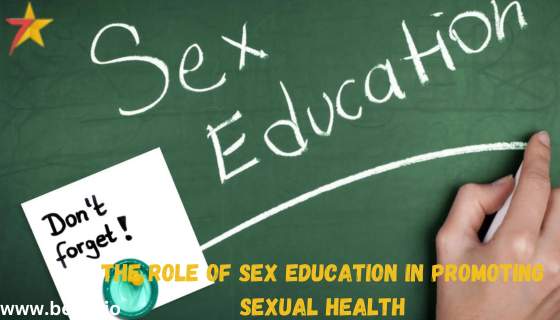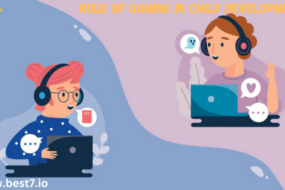
Sexual health education is recognized as an essential component for the promotion of sexual health across the lifespan. Sex ed is vital to cultivating wellness by offering holistic sexual health, relationship, and personal safety education. The obvious benefits of successful sex education programs in improving health outcomes, personal relationships, and informed decision-making are apparent.
Understanding Sex Education and Its Scope
According to the World Health Organization, sex education is defined as sexuality education (sex ed), which is the process of acquiring information and forming attitudes and beliefs about sex, sexual identity, relationships, and intimacy. Comprehensive sex education programs intend to provide individuals with the information and resources they need to make choices about their sexual well-being. The World Health Organization (WHO) notes that extensive sexual education is an important factor in lowering sexually transmitted diseases (STIs) and preventing unplanned pregnancies.
Addressing Information Gaps in Sexual Health Education
According to the Guttmacher Institute, in 2020, almost a quarter of adolescents between the ages of 15 and 19 had difficulty seeking access to proper sexual health information. These information gaps often created misconceptions about sexual health and further reinforced the need for effective educational endeavors.
The Benefits of Comprehensive Sex Education (CSE)
1. Increased Awareness and Knowledge
Sex education helps to improve knowledge of sexual health. Studies consistently found that students in comprehensive sex education programs had significantly more knowledge about STIs, contraception, and reproductive health. According to a study from the American Journal of Public Health, students who receive fact-based sex education are 50% more likely to use condoms and contraception than those who receive abstinence-only education.
2. Decrease in STIs and Unplanned Pregnancies
Research shows that when the United States relies on comprehensive sex education instead of abstinence-only, it can help reduce STIs and unintended pregnancies. A meta-analysis from the Journal of Adolescent Health showed that comprehensive sex education programs decrease STD rates by approximately 50% and unintended pregnancies by up to 40%. These results demonstrated the power of education in enabling people to decide for themselves about their sexual life.
3. Building Supportive Relationships
Sex education does not only cover the science of sexual health but also the mechanics of healthy relationships. Comprehensive sex education allows youth to learn about consent, communication, and respect as part of balanced interpersonal relationship skills. For example, a CDC study found that students who learned comprehensive sex education were more likely to feel confident talking about where they draw the line and enforcing their boundaries, resulting in happier future relationships.
4. Reduction in Sexual Risk Behaviors
Sex education in the context of comprehensive sexuality education is central to reducing adolescents’ risky behaviors. These programs arm people with crucial, factual information on safer sex practices like condom use and negotiation skills, equipping them to make responsible decisions. Adolescents who had comprehensive sex education were half as likely to engage in risky sexual behaviors as those who received no formal sex education, according to a 2005 systematic review in Health Education Research.
Implementing Effective Sex Education Practices
However, it is also important that effective sex education practices be put in place to ensure the benefits of these programs. Politicians, educators, and others worldwide are finally catching on to what experts have been saying for years: that some things are more effective than others in sexual health education.
1. Evidence-Based Curriculum
A curriculum based on evidence is at the core of effective sex education. Those that include medically accurate content on sexual health (methods of birth control, condoms), anatomy (internal and external sex organs), and relationships are more likely to lead to positive outcomes. Evidence-based approaches guarantee that people are provided with reliable and up-to-date information, as the WHO states.
2. Embracing Inclusivity and Diversity
Good sex education practices account for the fact that often, experiences and identities do not fit into neat groups. Making programs inclusive of all sexual orientations, gender identities, and cultural backgrounds creates a safe space for all. A study in the Journal of Sex Research showed that inclusive curricula made students 33% more at ease discussing sexual health topics.
3. The Role of Parental Involvement
Sex ed programs are more effective when they involve parents. Studies found that when parents are involved in their children’s sexual activity, there is more communication among the family about sexual health. A study done by the University of California showed that students whose parents were involved in their sexual health education reported greater comfort discussing sexual health topics at home.
4. Skills-Based Learning
Skills-based education is essential in the context of sexual and reproductive health, helping individuals develop skills in decision-making, communication, and negotiation. One study published in Sex Education showed that after learning a skills-based strategy, students were more confident when talking about sexual health issues.
Sexual Health Education and Overall Well-Being
Numerous studies have documented the relationship between sexual health education and overall bodily health. Research shows that quality comprehensive sex education leads to better sexual health outcomes and helps improve mental health, supporting emotional well-being.
1. Mental Health Benefits
Research shows that comprehensive sex education correlates with better mental health. Those who had received some formal sexual health education as teenagers reported decreased anxiety and depression in a study published by Archives of Sexual Behavior. These programs destigmatize sexual health and relationships, creating opportunities for solid emotional foundations.
2. Reducing Stigma
An all-encompassing sexual health education is significant for stigma reduction regarding sexual health issues. They debunk myths and reduce stigma around issues such as STIs and sexual orientation, fostering a kinder worldview. More recent studies show that those who learn about sexual health comprehensively are more likely to adopt positive beliefs about sex, creating a more accepting culture.
3. Empowering Personal Autonomy
Comprehensive sex education equips individuals with the right information to understand their bodies and relationships, empowering them to make the best choices for themselves. According to the Guttmacher Institute, empowered individuals are more likely to engage in preventive behaviors, improving their sexual health status.
Strategies for Education-Based Sexual Health Programs
There are a variety of ways to improve sexual health education, with programs designed to address different populations and contexts.
1. School-Based Programs
School-based sexual health education programs have become an attractive strategy to reach young people. These programs usually include an evidence-based curriculum and age-appropriate content, as recommended by the CDC.
2. Community Initiatives
Community-based initiatives play a key role in reaching broader populations, such as LGBTQ+ youth or underserved groups, by providing specialized education and resources. According to research by the National LGBTQ Task Force, community-based efforts significantly increase access to sexual health information and resources.
3. Online Education Programs
With the growth of digital technology, online sexual health education programs have expanded. These personalized virtual platforms allow users to interact anonymously with sex education courses at their own pace, with one study in Sexual Health finding online programs effective in increasing knowledge and understanding of sexual health topics.
The Broader Health Impact of Sex Education
Sex education has been shown to have a profound influence on health outcomes. Study after study links comprehensive sex education to better sexual health and overall well-being.
1. Long-Term Health Benefits
Comprehensive sex education encourages positive behaviors, often continuing into adulthood. Research in The Journal of Adolescent Health found that young adults who received comprehensive sex ed were less likely to engage in risky behaviors as teens or later on.
2. Decreasing Healthcare Costs
Comprehensive sex education can also help reduce STIs and unintended pregnancies, decreasing healthcare costs. The National Center for Chronic Disease Prevention and Health Promotion reported that every dollar spent on sexual health education can save $5 in future healthcare costs related to STIs and unintended pregnancies.
3. Enhancing Public Health
Comprehensive sex education promotes better public health by lowering STI and unplanned pregnancy rates in communities. Communities with these programs often report lower STI rates and better reproductive health outcomes.
Communities can create supportive environments by acknowledging the value of sexual health education and developing tools that increase awareness and understanding, allowing individuals to make the best decisions for their health.












